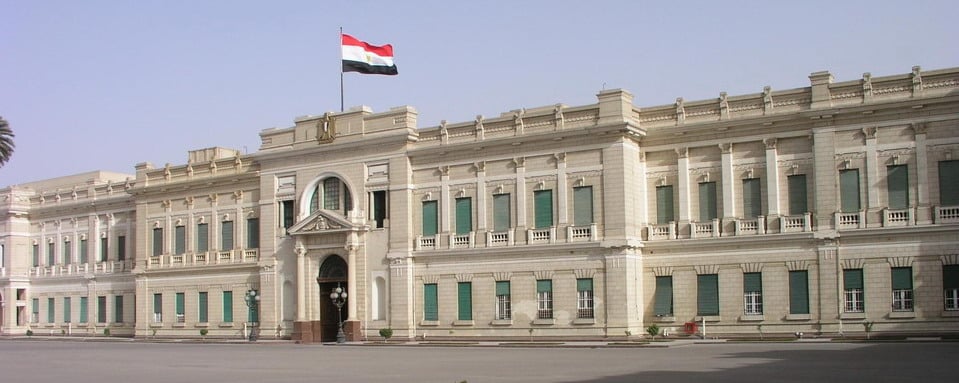With the presidential elections in Egypt just around the corner, the political situation in the country is deteriorating. The arrest of Abdul Moneim Aboul Fotouh, a leading figure in the Strong Egypt Party (SEP), on February 15th is the latest in a string of arrests of political figures, critics and officials. Aboul Fotouh is accused of having ties with the outlawed Muslim Brotherhood. Seven other members of the SEP are also detained. In 2012 Aboul Fotouh ran as a presidential candidate gaining 17% of the first round votes. Leading up to the coming elections, Aboul Fotouh spoke out against the crackdown on opponents. On January 28th he called upon the electorate to boycott the first round between March 26th and 28th. Since December 2017 several presidential candidates have been harassed or arrested. Incumbent President Sisi claims that he is combating terrorism and dissidents in order to “preserve the democratic experience that began four years ago”. In this hostile atmosphere no serious candidates remain in the race. With the Sisi supporter Moussa Moustafa Moussa as the last remaining candidate for the election, Sisi has basically secured his second term.
Sisi’s presidency Field Marshall Abdel Fattah el-Sisi rose to power during the 2013 coup d’état that ousted President Mohamed Morsi and Muslim Brotherhood. Sisi went on to become president after his landslide victory in the 2014 presidential election. During his presidency human rights have deteriorated in Egypt according to Human Right Watch observers. The government is behind the silencing of political figures and the clampdown on press freedom. Sisi is justifying all these actions by calling it necessary actions against terrorism. “Combating terrorism is a human right, a new right that I am adding to human rights in Egypt. ” His repressive policies have made him popular by a large part of electorate. Sisi is often hailed as the guardian of republic. The timing of recent military operations in the Sinai are seen by observers as an act to bolster popular support. The crackdown on political opponents is his latest move. On February 6th Sisi warned that following dissidents like Aboul Fotouh is undermining “Egypt’s stability and security”. He threatened to use force to safeguard the election.
Crackdown on opponents The crackdown on political opponents of Sisi begun even before any official election date was set. Colonel Ahmed Konsowa, who had shown the intent to run for president, was sentenced to six years in prison for ‘’ actions that undermine the military system’’ in December. The next candidate to be ousted was former Prime Minister Ahmed Shafik. Shafik was seen as one of the most serious opponents of Sisi: The former Prime Minister ended second in the 2012 presidential election. In December he returned from the United Arab Emirates to participate in the election. On January 7th he suddenly withdrew from the race, making a statement that during his time in Egypt he had reconsidered his position. “I have seen that I will not be the ideal person to lead the state’s affairs during the coming period. Thus I have decided not to run in the upcoming 2018 presidential elections. ” According to Shafik’s lawyer was the former Prime Minister pressured by government officials to make this statement.
With serious opposition fading, former chief of staff, General Sami Anan, announced his candidacy on January 20th. Anan was critical on the crackdown. “I call on civilian and military institutions to maintain neutrality towards everyone who had announced their intention to run and not take unconstitutional sides of a president who will leave his post in a few months”. Anan’s candidacy and campaign came to a sudden end. On January 23rd he was arrested and accused of electoral violations. Presidential candidate Khaled Ali responded to the arrest by withdrawing from the race. “The opportunity for hope in this presidential election has gone,” according to Ali. As reaction to the withdrawals, Aboul Fotouh called for the boycott of the election. “The opposition has unfortunately declined to its worst condition ever” according to Aboul Fotouh just before he got arrested himself. There are currently several investigations into the boycott. Numerous politicians and activist face charges of “incitement against the state” and “attempting to overthrow the regime.”
Sisi now only faces one candidate during the election; Moussa. The chairman of the liberal El-Ghad Party entered the race on January 29th, just hours before the candidacy deadline. Moussa is considered by many as a puppet candidate. He has been one of Sisi’s strongest support in the last years. Amidst the crackdown, the international community is quiet. With the opposition sidelined, the media in control and popular support, Sisi seems to have secured his second term.
Sources: Al Jazeera Al Jazeera Reuters HRW

